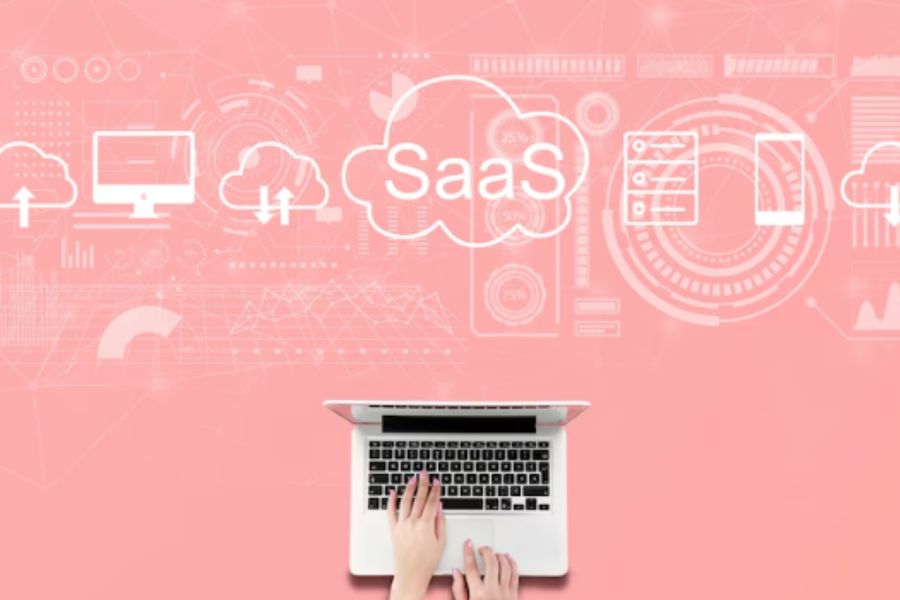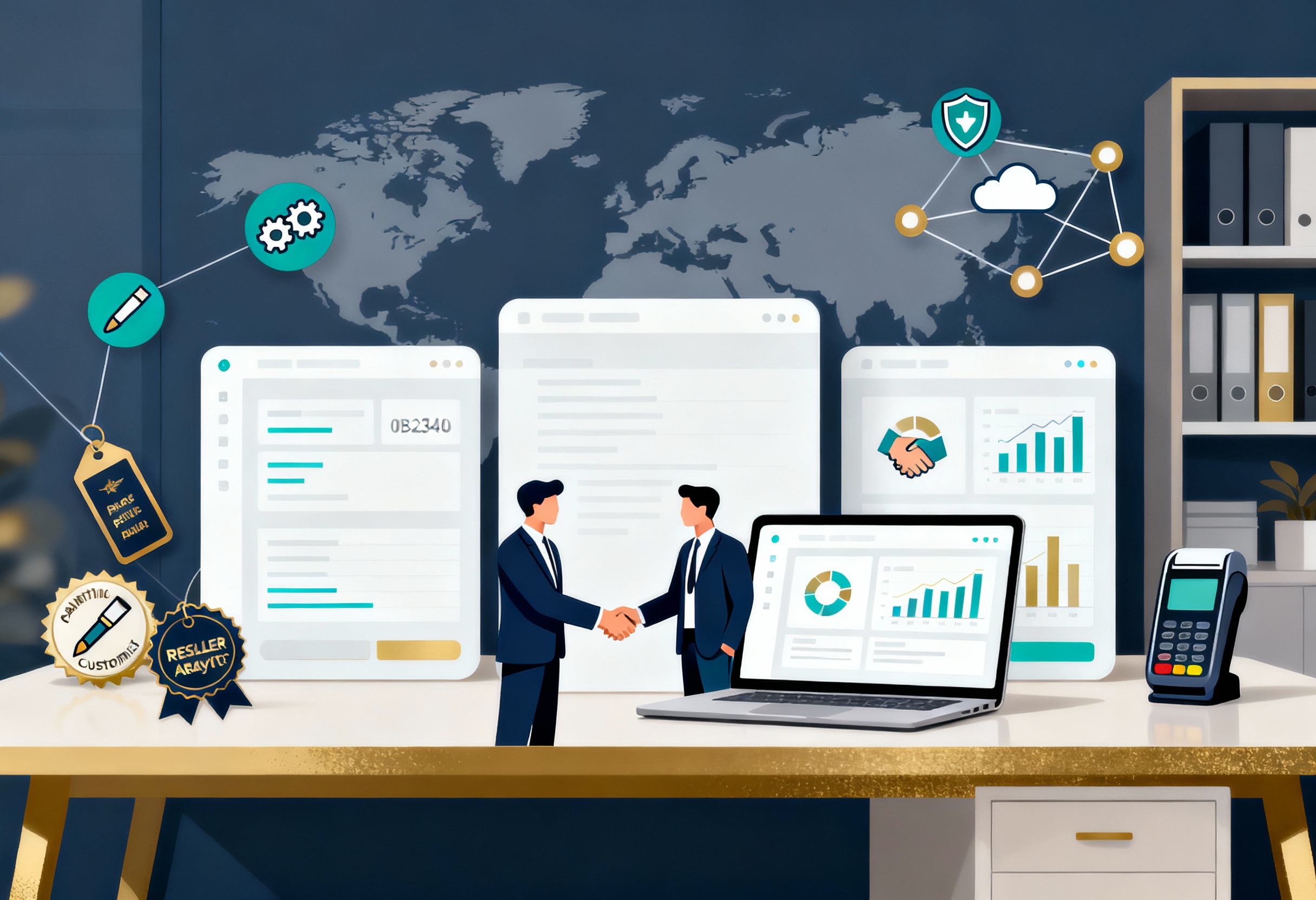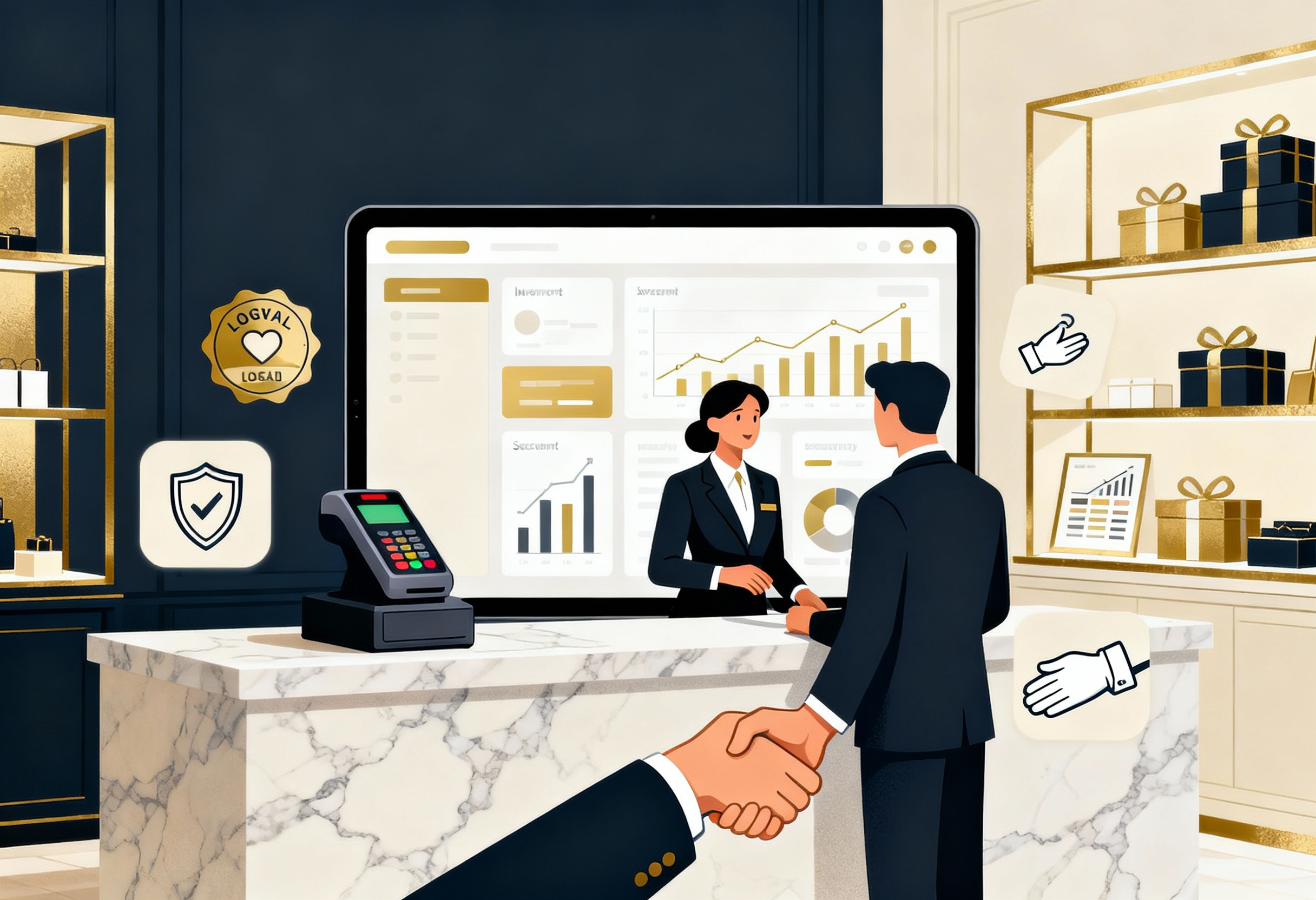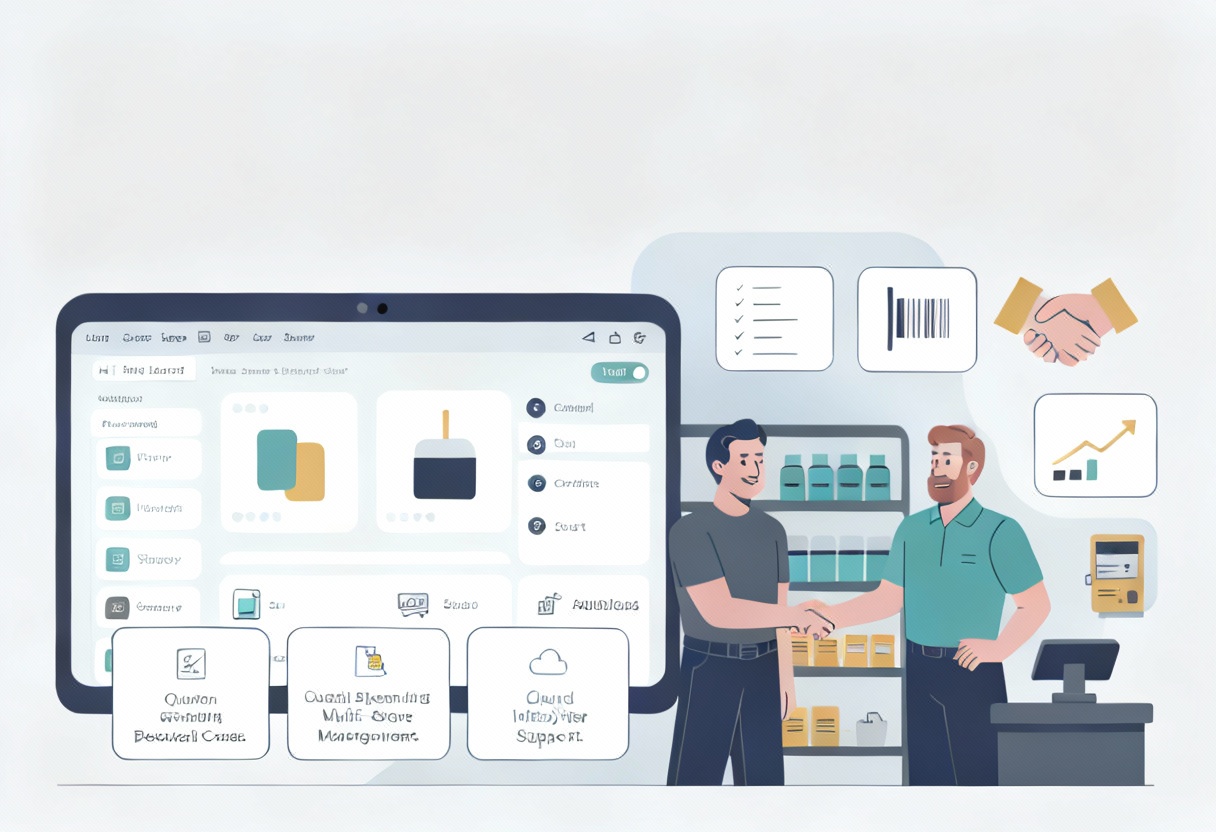White label software to resell offers agencies, freelancers, and entrepreneurs a powerful way to expand services and generate recurring revenue without building products from scratch. By rebranding proven software solutions as your own, you can deliver value to your clients while growing a scalable business efficiently. This guide explores what white label software is, why it’s profitable, how to choose the right solutions, and the best software categories to resell for consistent income.
What Is White Label Software to Resell?
White label software to resell is pre-built software developed by one company, allowing you to rebrand it as your own and sell it under your name. It helps you enter the tech market quickly, earn recurring revenue, and expand your service offerings without development costs.
This model is popular among agencies, SaaS entrepreneurs, and consultants looking to add scalable digital products to their portfolio.
Why Resell White Label Software?
White label software reselling allows you to enter the SaaS market quickly without the heavy costs and risks associated with building and maintaining your own software. Here’s why thousands of agencies, consultants, and entrepreneurs choose to resell white label software:
No Development Hassles
Developing software requires significant investment in hiring developers, UI/UX designers, project managers, and QA testers. It also involves:
- Requirement analysis and documentation.
- Long development cycles.
- Frequent iterations and testing.
- Debugging and maintenance.
By reselling white label software, you skip these complexities, saving time and energy while focusing on what you do best: marketing and client relationship management.
Faster Time-to-Market
Building proprietary software can take months to years, delaying your ability to generate revenue. With white label software:
- You can launch in days or weeks.
- The product is fully built, tested, and ready to use.
- You can focus on branding, packaging, and marketing immediately.
- It allows you to capitalize on market trends quickly without missing opportunities.
Low Overhead Costs
Operating your own SaaS product involves infrastructure costs, server maintenance, continuous updates, and security monitoring. With white label software:
- The vendor handles hosting, updates, and technical maintenance.
- You don’t need an in-house development or support team.
- You reduce your financial risk and can reinvest profits into marketing or client support.
This ensures your fixed costs remain low, enhancing profitability.
Recurring Revenue Potential
White label software is often sold on subscription-based pricing models (monthly or annually), providing:
►►► Optimal solution set for businesses: Multi store POS, Next-gen POS, Inventory Management Software (MSI), Self Service, Automation, Backorders
- Predictable, recurring cash flow.
- Increased business valuation due to MRR (Monthly Recurring Revenue).
- Upselling and cross-selling opportunities for feature expansions, onboarding services, and consulting.
This model shifts your income from one-time transactions to sustainable recurring revenue, providing long-term stability for your business.
Brand Expansion
White label software enables you to:
- Position yourself as a technology provider in your niche (e.g., digital marketing, POS solutions, eCommerce optimization).
- Strengthen your brand by offering proprietary solutions with your logo, color schemes, and domain.
- Create client loyalty as they use your branded platform daily.
- Bundle your existing services (e.g., marketing, SEO, consulting) with your software offering for a full-service solution.
This approach differentiates you from competitors who rely solely on services, positioning your business for scalable growth
Ability to Scale Quickly
As your client base grows, white label software allows you to:
- Add new clients without heavy infrastructure investment.
- Expand into new markets or verticals with minimal customization.
- Offer tiered plans to cater to different customer segments, maximizing lifetime customer value.
Access to Ongoing Vendor Support
Most white label software vendors provide:
- Regular updates with new features.
- Security patches and maintenance.
- Technical support for troubleshooting.
This reduces your workload and ensures that your clients always receive an up-to-date product.
Best Types of White Label Software to Resell
If you’re exploring white label software to resell, consider these proven categories:
- POS Systems (for retail, restaurants, and eCommerce)
- CRM and Sales Management Tools
- Email Marketing Platforms
- Social Media Scheduling Tools
- SEO Reporting Dashboards
- Appointment Booking Software
- Learning Management Systems (LMS)
- Chatbot and Live Chat Software
- Project Management Tools
- Website and eCommerce Builders
These categories are in constant demand across industries, ensuring a broad customer base and recurring sales.
How to Choose the Best White Label Software to Resell
Selecting the right white label software is crucial to ensure profitability, customer satisfaction, and operational ease in your reselling business. Below is a step-by-step detailed guide to help you evaluate and select the best software for your niche.
Identify Your Niche and Audience Needs
Before selecting a platform, define your target audience:
- Analyze pain points: Understand what challenges your customers face that software could solve (e.g., retailers needing inventory automation, agencies needing automated reporting).
- Survey your audience: Use Google Forms or Typeform to validate demand.
- Research competitors: Check what other agencies or resellers in your niche are offering, pricing structures, and market gaps.
- Align with your expertise: If you are a marketing agency, reselling white label SEO tools or email marketing platforms will integrate seamlessly with your services.
Tip: The best white label software to resell aligns with your audience’s needs and your existing services, making upselling easier.
Evaluate Core Features and Functionality
- Feature alignment: The software should directly address your audience’s pain points.
- Ease of use: Ensure intuitive UI/UX to minimize onboarding and support needs.
- Automation capabilities: Look for automation in reporting, billing, CRM syncing, or task management to reduce manual work.
- Integration: Confirm that it integrates with payment gateways, CRM systems, Zapier, or other tools your clients use.
- Mobile access: Modern clients value mobile-friendly or app-based access.
Assess Branding and Customization Options
White label software should allow complete rebranding to build your brand identity:
- Brand assets: Can you replace logos, color palettes, and custom domains?
- Branded dashboards: Confirm whether you can create branded dashboards for your clients.
- Custom emails: Ensure the ability to send branded notifications and reports.
- Control over user experience: Check if you can customize layouts or modules to match your branding.
Tip: The more customizable the platform, the stronger your brand presence.
Check Pricing Structure and Profit Margins
To ensure profitability:
- Understand wholesale vs. retail pricing: Calculate your potential margins clearly.
- Look for transparent pricing: Be wary of hidden fees, onboarding charges, or restrictive scaling plans.
- Flexible plans: Check if the vendor allows scaling by user count or features.
- Lifetime deals or reseller discounts: Some vendors provide volume-based discounts or reseller-friendly rates.
Example: If the wholesale price is $50/user/month and you can sell at $100/user/month with minimal overhead, this yields healthy recurring profit margins.
Review Vendor Support and Documentation
Strong vendor support reduces your workload:
- Support type: Does the vendor provide end-client support or only reseller support?
- Availability: 24/7 live chat, email, and knowledge base are preferable.
- Training resources: Webinars, onboarding videos, and clear user guides help reduce your training load.
- Community: Some vendors have communities or forums that enable quick troubleshooting and knowledge sharing.
Test Before Committing
Before investing heavily, test the software thoroughly:
- Request a demo or free trial: Assess workflow, functionality, and client experience.
- Performance testing: Ensure speed, stability, and uptime reliability.
- Evaluate integration: Check how it syncs with your CRM, payment gateways, or email marketing tools.
- User feedback: Test with a small client group to gather feedback on usability.
Benefits of Selling White Label Software
- Recurring Revenue: Subscriptions provide consistent cash flow.
- Upsell Opportunities: Bundle software with your services for increased deal size.
- Increased Client Stickiness: Clients using your branded software are less likely to leave.
- Scale Easily: Serve multiple clients without increasing operational costs significantly.
Top White Label POS Software to Resell
If you want to resell a white label POS system, ConnectPOS is a recommended choice:
- Supports retail, F&B, cannabis, and pop-up businesses.
- Offers offline mode, multi-store management, and advanced inventory tracking.
- Allows white labeling with your branding and custom pricing.
- Provides integration with Shopify, Magento, WooCommerce, BigCommerce, and custom eCommerce platforms.
Contact ConnectPOS if you want a ready-to-sell POS solution to expand your reseller business.
How to Start Reselling White Label Software
- Choose a software niche aligned with your audience.
- Negotiate reseller agreements and understand profit structures.
- Develop a go-to-market strategy with pricing, packaging, and onboarding processes.
- Build a branded landing page or sales funnel for lead generation.
- Offer customer support and training to build trust and reduce churn.
Is Reselling White Label Software Profitable?
Yes. If marketed well, reselling white label software can generate high-margin, recurring revenue with minimal overhead, especially if you already have a customer base (such as an agency or IT consulting business). Here’s why:
- High-Margin, Recurring Revenue: White label software typically operates on subscription models, enabling you to generate predictable monthly recurring revenue (MRR). Since you’re reselling an existing solution under your brand, you avoid the heavy development costs while retaining healthy profit margins (often 30–60% depending on vendor agreements). Example: Agencies reselling white label social media scheduling tools or SEO platforms can charge clients a monthly fee with minimal ongoing costs beyond support and onboarding.
- Minimal Overhead: Unlike building software from scratch, white label solutions let you skip product development, maintenance, and server management, reducing your operational burden. Your primary costs will include branding, marketing, and customer support, which are manageable if you already have an established client base.
- Fast Time-to-Market: Since the product is already developed and tested, you can launch your branded version quickly, capturing market opportunities faster and responding to client needs without delays.
- Value Addition for Existing Clients: If you run an agency or IT consulting business, adding white label software to your offerings lets you upsell and cross-sell to existing clients while providing more comprehensive service packages. This increases client retention and lifetime value.
- Scalability Without Heavy Investment: White label reselling is scalable since you can add more clients without proportionally increasing costs. Most vendors handle backend infrastructure, allowing you to focus on sales, marketing, and customer relationships.
- Brand Growth: Reselling under your brand strengthens your market positioning, increasing trust and recognition in your niche.
Conclusion
Reselling white label software is a powerful way to diversify your income, expand your brand, and deliver value to your customers without development headaches. By choosing the right software partner, focusing on in-demand niches, and executing effective marketing, you can build a profitable SaaS business with lower risk.
►►► Optimal solution set for businesses: Shopify POS, Magento POS, BigCommerce POS, WooCommerce POS, NetSuite POS, E-Commerce POS



